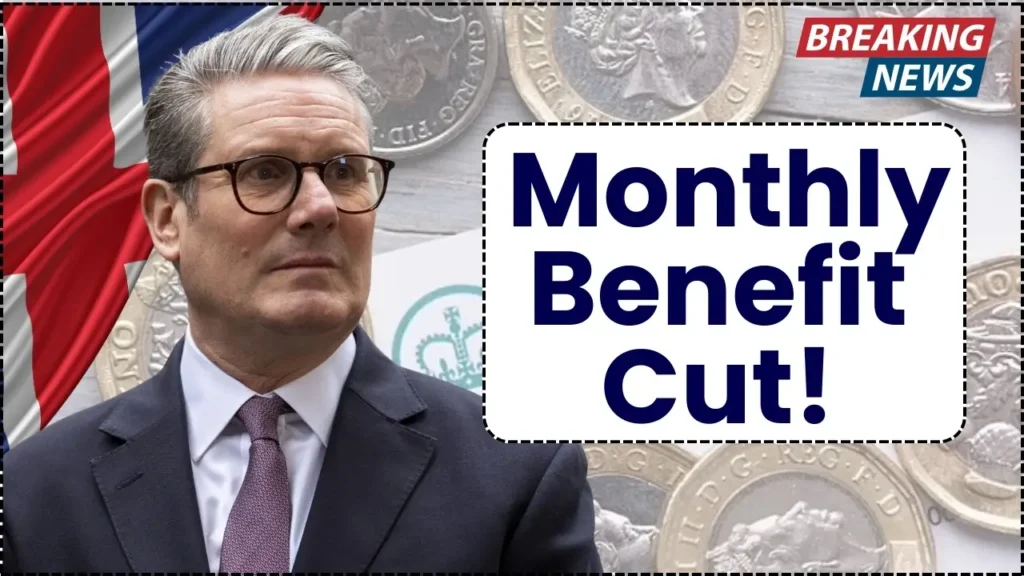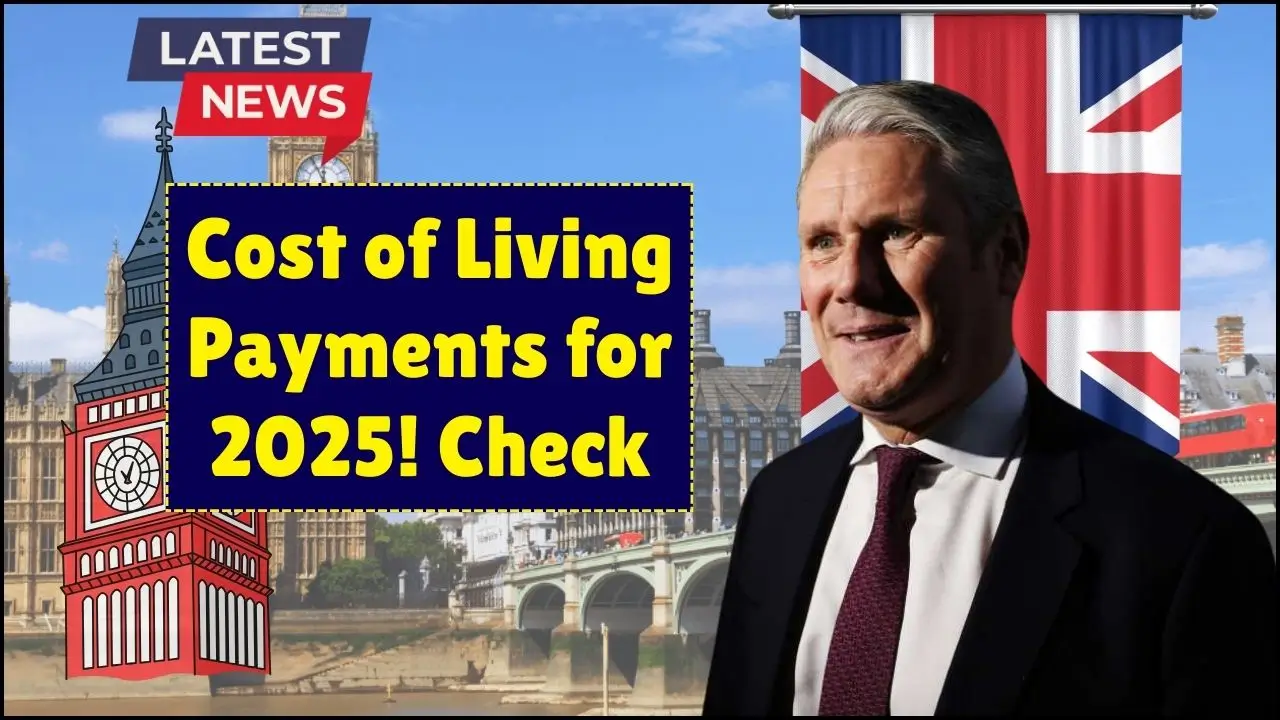In a startling announcement, the Department for Work and Pensions (DWP) has confirmed significant changes to the UK’s welfare system that could result in a shocking £416 monthly benefit cut for thousands of families. These reforms, which are set to overhaul how health-related benefits are assessed and paid, have sparked widespread concern among claimants, charities, and welfare advocates. For many vulnerable households, this potential loss of income represents a serious threat to their financial stability, making it essential to understand the changes and prepare for their impact. The DWP benefit cut is positioned by the government as a necessary measure to control welfare spending, but for those affected, it feels like a direct hit on their ability to manage daily life.

The impending DWP benefit cut is primarily aimed at reforming the health and disability components of Universal Credit and other related benefits. The core of the issue is the plan to scrap the Work Capability Assessment (WCA) and instead use the Personal Independence Payment (PIP) assessment to determine eligibility for extra health-related financial support. This shift is expected to tighten the criteria, meaning many individuals who currently receive an additional amount for having Limited Capability for Work and Work-Related Activity (LCWRA) could lose it. This health element is worth up to £416 a month, and its removal is the headline figure causing alarm across the country. Understanding the mechanics of this DWP benefit cut is the first step for families to safeguard their finances and explore their options.
£416 Monthly Benefit Cut
| Benefit Change Overview | Details |
|---|---|
| Main Benefit Affected | Universal Credit (UC) Health Element |
| Primary Reason for Change | Scrapping the Work Capability Assessment (WCA) and using a stricter PIP-based assessment |
| Maximum Potential Loss | Up to £416 per month for those losing the LCWRA element |
| Target Group | New and existing UC claimants with health conditions, plus some ESA recipients |
| Government’s Stated Goal | To control rising welfare costs and encourage work |
| Key Action for Claimants | Review eligibility, prepare for reassessment, and know the appeals process |
Why Are These Benefit Changes Being Implemented?
- The government has justified these reforms by highlighting the significant increase in spending on incapacity and disability benefits, which has climbed to £65 billion annually. Officials argue that the existing system does not adequately encourage those who are able to work to do so, leading to unsustainable costs. The aim, according to the DWP, is to modernize the welfare state by focusing support on individuals with the most severe health conditions while promoting employment for others.
- However, critics, including numerous disability charities and welfare rights groups, strongly dispute this narrative. They argue that the reforms are fundamentally a cost-cutting exercise that fails to recognize the real-world barriers to work faced by people with disabilities and long-term health issues. The fear is that this DWP benefit cut will penalize people for being unwell rather than providing a genuine pathway to employment, pushing many further into poverty.
Who Will Be Hit Hardest by the Cuts?
While the changes are systemic, they will not affect everyone equally. The following groups are considered most at risk from this DWP benefit cut:
- Universal Credit Claimants with LCWRA: Over 450,000 households currently receiving the health-related top-up are at risk of losing it upon reassessment under the new, stricter criteria.
- Employment and Support Allowance (ESA) Recipients: Individuals on ESA may also face reassessment and could see their monthly income drop by £300 to £400.
- Single-Parent Households: Families led by a single parent, especially those with health challenges, could face losses between £250 and £350 per month.
- Carers: If the person being cared for loses their qualifying disability benefit (like PIP), the carer may in turn lose their entitlement to Carer’s Allowance, creating a domino effect of financial hardship.
What to Do if You Are Affected by the £416 Monthly Benefit Cut
Receiving notice that your benefits will be reduced can be incredibly stressful, but it’s important to take immediate and structured action. The system has a formal process for challenging decisions you believe are wrong.
- Request a Mandatory Reconsideration: Your first step is to formally ask the DWP to review its decision. You must do this within one month of the decision date. It is crucial to provide any new or supporting evidence, such as recent letters from your GP, specialists, or support workers, that strengthens your case.
- Lodge an Appeal: If the DWP upholds its decision after the Mandatory Reconsideration, you have the right to appeal to an independent, impartial tribunal. This takes the case out of the DWP’s hands and allows a judge to make a final, legally binding decision.
- Seek Independent Advice: You do not have to go through this process alone. Organizations like Citizens Advice, Turn2us, and Scope offer free, expert guidance on navigating the appeals process for the DWP benefit cut. They can help you understand the legal criteria and prepare your case effectively.
Finding Alternative Financial Support
If your income is reduced by the DWP benefit cut, it’s vital to explore all other available avenues of support to help you stay afloat.
- Household Support Fund: This fund is managed by local councils and provides grants to help with essential costs like energy bills, food, and other necessities. You need to apply directly to your local authority to access it.
- Discretionary Housing Payments (DHPs): If the benefit cut puts, you at risk of not being able to pay your rent, you can apply to your local council for a DHP.
- Debt and Budgeting Advice: If you are worried about falling into debt, charities such as StepChange and National Debtline offer free, confidential advice to help you manage your budget and negotiate with creditors.
FAQs on £416 Monthly Benefit Cut
Will everyone on Universal Credit lose money?
No, the changes are specifically targeted at the health-related element of Universal Credit. Those without health conditions affecting their ability to work will not be directly impacted by this specific reform, though other benefit rules may still apply.
Are there any exemptions from these cuts?
The government has stated that individuals with the most severe health conditions or a terminal illness will be protected from these changes. There are also some transitional protections for existing claimants who are moved onto the new system.
How will the DWP decide who is fit for work?
The new system will rely more heavily on the Personal Independence Payment (PIP) assessment to determine eligibility for the health top-up, replacing the old Work Capability Assessment (WCA). This is considered a stricter test by many experts.
What is the difference between a Mandatory Reconsideration and an appeal?
A Mandatory Reconsideration is an internal review conducted by the DWP itself. An appeal is a formal hearing held by an independent tribunal, which is separate from the DWP and has the power to overturn its decisions.
How can I prove my health condition to the DWP?
Medical evidence is key. This includes letters from your GP, hospital consultants, and any other healthcare professionals involved in your care. Detailed notes on how your condition affects your daily life are also crucial for both the assessment and any subsequent appeal.
£400 Cost of Living Payment from DWP Set for Early October 2025 Everything You Need to Know!













 Claim Here!
Claim Here!